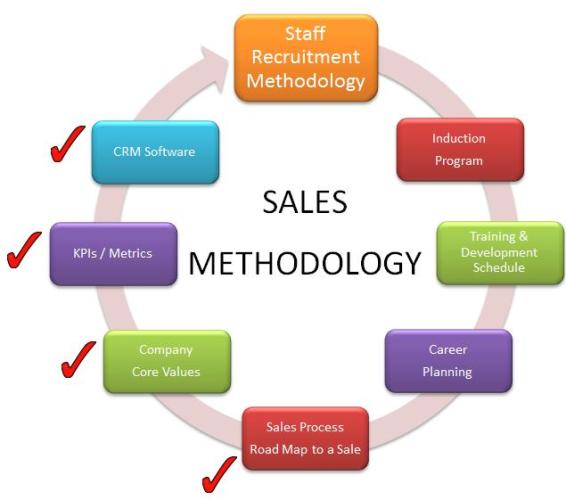Staff Recruitment Methodology: Building An Effective Sales Team
Mark Bradman, 21 March 2012
The most common methodology used is outsourcing. This is becoming so common that it’s easy to forget that there are basic steps to this process irrespective of who performs it.
A well-thought out recruitment plan could be the difference between finding yourself in a never-ending loop of interviews and a team of capable ambassadors for your products and services.

How do you want to represent your company?
This can vary from selling your company and/or products in the most glowing terms down to being deliberately vague to create interest in applicants through other means (eg. the allure of a high salary, the opportunity to run your own business, etc).
What experience and skills do you expect in an applicant?
What would your ideal applicant look like? You can waste a lot of your time (and applicants’ time) if you aren’t clear enough in this regard. For example, if you only want school leavers, then best to be upfront about it rather than fielding unnecessary calls from experienced sales people.
What is your Search Strategy?
The trend in New Zealand is to place ads online (Seek, TradeMe, etc), however, ads in print media are still common place especially in local newspapers in close proximity to your business premises and/or the territory in which you want your sales person to operate. Headhunting is another option if you have a specific type of person in mind and are good at networking.
How will you evaluate your candidates?
How many people do you want to shortlist? How many interviews will you have with each one? Will you be using any behavioural-based profiling and/or technical skill analysis? One job I applied for involved 4-5 separate interviews over the course of more than a month including a mock presentation of their services to a panel of 3 of their managers. It’s one thing to be thorough but I couldn’t help but wonder what sort of position I was applying for that could be left unfilled for such a long period of time.
Job Reference Checking
It’s almost inconceivable that this task might be missed by any employer, yet you can find the consequences of such folly reported on a regular basis through the news media network.
Job Offer
Finally you get to the point to which you’ve been aiming. What is your back-up plan in case your preferred candidate declines your offer? What if they can’t start in the time period you require (eg. to attend a specific training course, conference, trade show, etc)? What if you can’t get a hold of their referees?
Signed Employment Contract
Meet with the preferred candidate/s to discuss in detail the terms of their employment. Starting any employee without a signed agreement is a Bad Idea with potentially expensive consequences.
Recruitment Methodology Example:
Day 1 – Place ad Online: Being a high profile company and working with a household brand, we are as clear as possible about what we do and what we are looking for in a candidate.
Day 2-9 – Phone Interview: Scan each application as it arrives and conduct first Interview by phone. Even face-to-face reps spend most of their time prospecting clients, making an excellent phone presence as important as anything written on their CVs.
Day 10 – Interview/Seminar: We like to evaluate as many candidates as we can, getting all shortlisted candidates into one room to explain the position in more detail and field everyone’s questions in a single sitting. We then follow this up with a face-to-face interview with each candidate with one of our line managers.
Day 11-12 – Confer between managers to select preferred candidate/s: The Sales Manager would have already interviewed all the candidates by phone so they’re basically looking for confirmation of the original assessment. To this end, he would personally interview any candidate/s he’s unsure of and hand over the prime candidates to their line mangers to interview.
Day 13 – Job Offer: Ring preferred candidate/s. Email full job offer upon verbal acceptance with request for referees.
Day 14-16 – Check References: Obviously the candidate wouldn’t offer anyone they weren’t expecting a glowing endorsement from. Therefore it’s important that the referees relate back to an appropriate role on their CV and that your questions are probing and specific.
Day 17-18 – Meet with candidate/s to discuss and sign the terms of employment. Amend as required.
Day 21-25 – Commencement, depending on their notice period: Refer to next Blog on Induction/Training as to what to do with them when they finally arrive.

